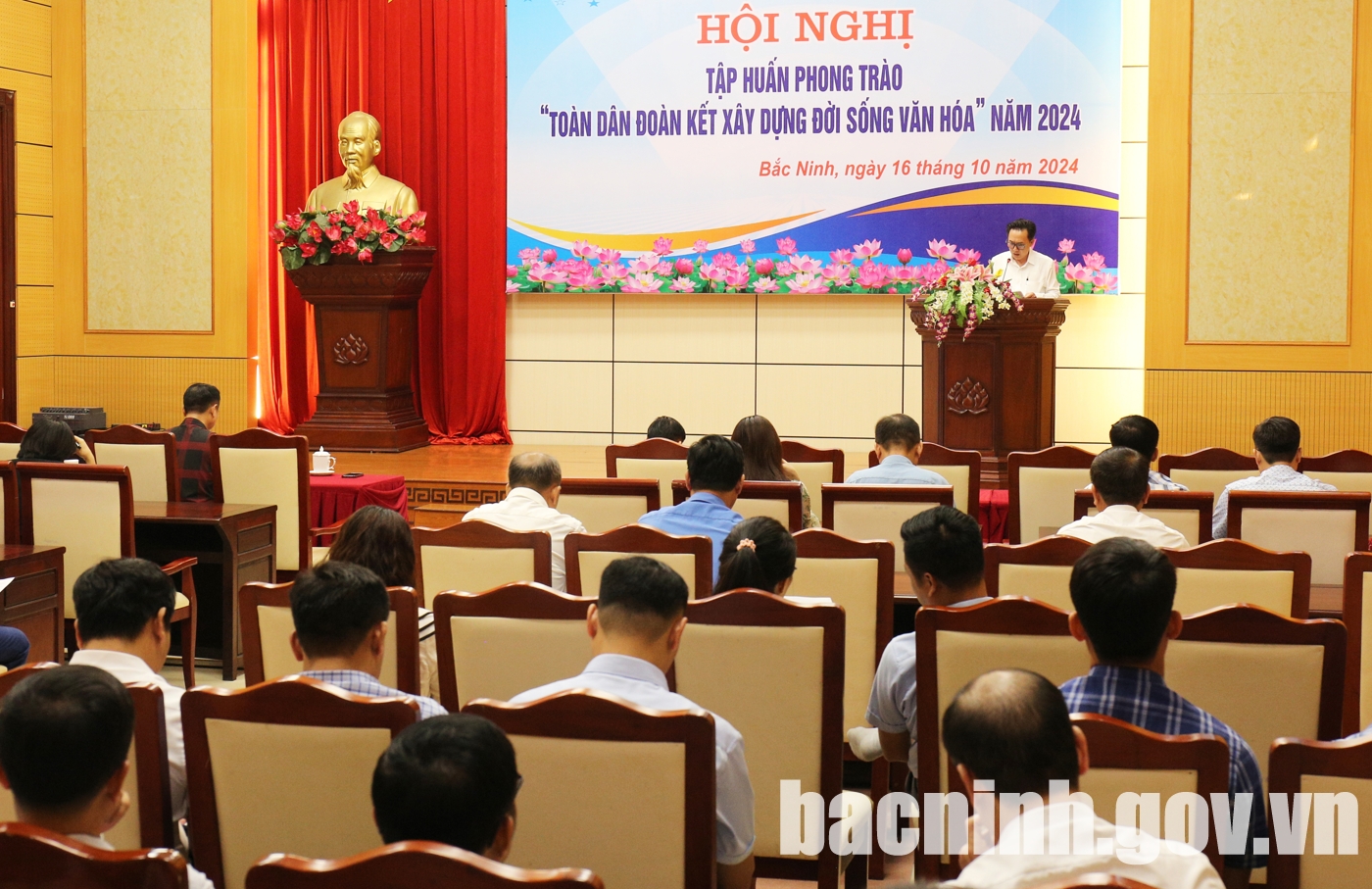Professional training course on movement "All people unite to build a cultural life" held
(BNP) - On October 16, at Kinh Bac Cultural Center, the Provincial Steering Committee for "All people unite to build a cultural life" movement organized a professional training course for the tem of cadres and specialists in charge of the movement of districts, towns, cities and 126 cultural cadres of communes, wards and townships.

Overview of the training course.
At the conference, delegates listened to the reporters disseminate, thoroughly understand and guide the documents on the movement "All people unite to build a cultural life" in the new period; regulations on criteria, procedures, and procedures for considering and recognizing civilized urban standards and related contents; the work of building and implementing village covenants, conventions and implementing civilized lifestyles in the locality; the work of building a grassroots cultural environment, building a model of "Typical cultural residential areas" in the locality; dissemination of Decree 86/2023/ND-CP of the Government stipulating the framework of standards and procedures, procedures, and dossiers for considering and awarding the titles of "Cultural Family", "Cultural, Quarter Village” and "Typical Commune, Ward, and Town".
Representatives from the Department of Culture, Sports and Tourism guided the awarding of the titles "Cultural Family", "Cultural, Quarter Village " and “Typical Commune, Ward, Town" in Bac Ninh province.
The training course aims to implement Resolution No. 71-NQ/TU dated August 29, 2022 of the Bac Ninh Provincial Party Committee on building and developing Bac Ninh culture and people by 2030 to meet the requirements of sustainable development; improve management skills, organize cultural and sports activities to effectively exploit the system of cultural institutions at the grassroots level; enhance exchanges, learn from experiences in implementing movements between localities in the province; exchange experiences in building a grassroots cultural environment and implementing and building a model of "Typical cultural residential areas", thereby, helping cadres working on movements to further improve the quality and efficiency of their work.






